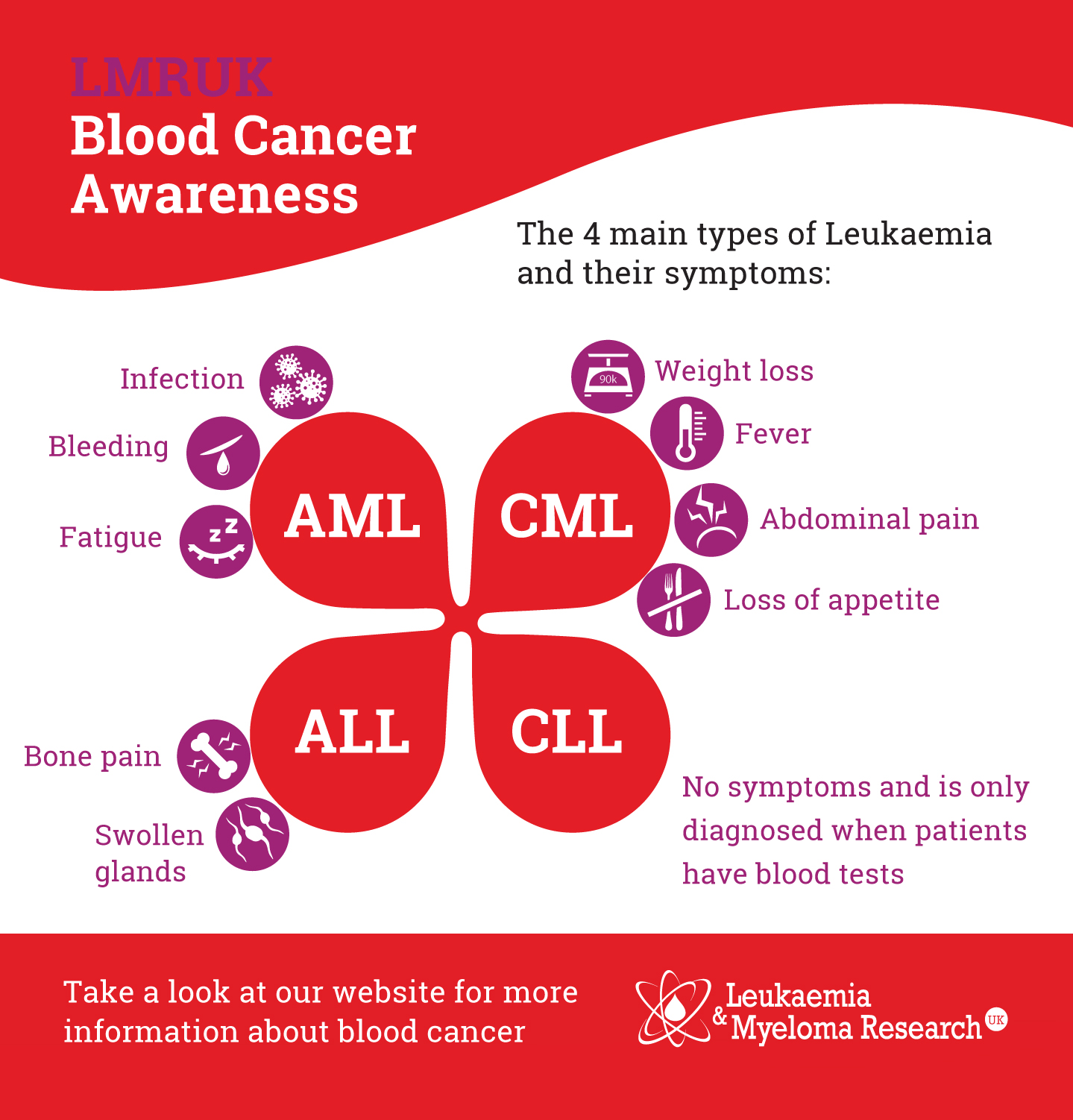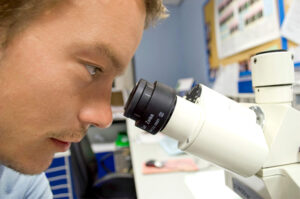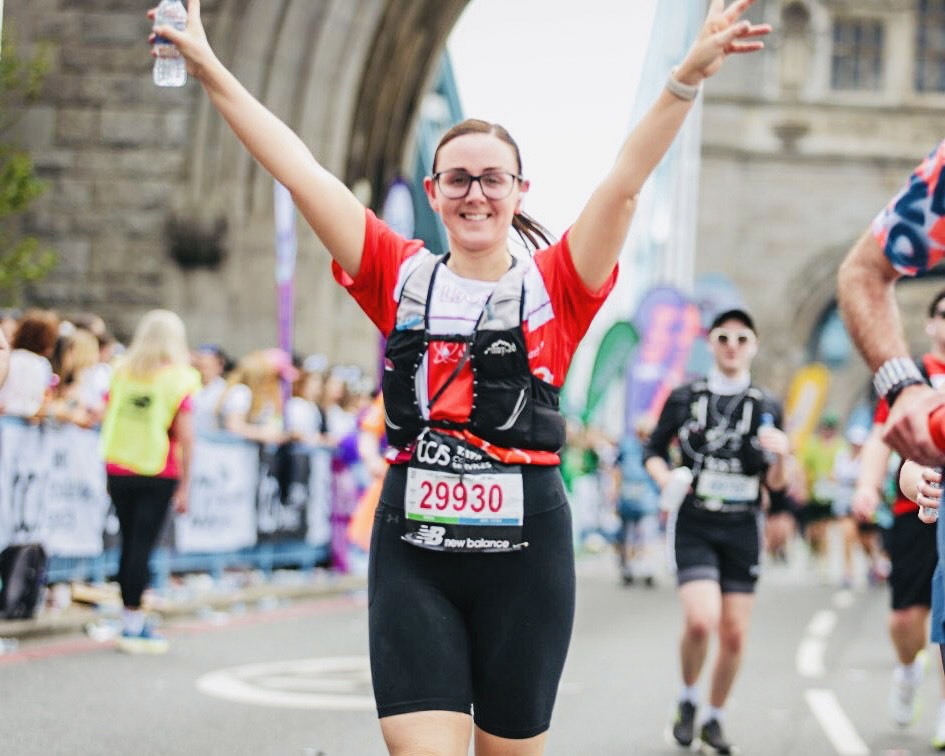
There are over 100 variants of blood cancer, including types of Leukaemia, Lymphoma and Myeloma. They can come in different forms from acute (fast-growing) to chronic (slow-growing).
Sunday 21st April marks Acute Myeloid Leukaemia (AML) World Awareness Day which sees people from across the globe unite to help raise awareness of this form of blood cancer.
We’re sharing facts about AML to educate people and help them to recognise the common signs and symptoms to look out for.
- AML is a type of Leukaemia that affects the white blood cells that originate in the bone marrow.
This form of cancer produces too many immature white blood cells which stop the body from producing the other types of cells which are essential for the immune system.
- AML is one of the most common types of Leukaemia.
Other forms include Chronic Myeloid Leukaemia (CML), Acute Lymphoblastic Leukaemia (ALL), and Chronic Lymphocytic Leukaemia (CLL).
- Symptoms include fatigue, bleeding, and recurring infections.
- AML is the most common form of Acute Leukaemia in adults over 60.
However, it can affect people of all ages, but is known to be rare in children.
- AML comes with differing underlying genetic mutations which have varying prognoses. It may occur unexpectedly or after a pre-existing blood condition.
It may also be triggered by damage to the bone marrow as a result of radiation or chemotherapy exposure given to treat other diseases or cancers. If untreated, AML can be fatal but there are now many new, modern treatments to help treat patients.
Funding vital blood cancer research
 We’re dedicated to funding vital new research projects to advance the understanding of the cause, diagnosis, and treatments of blood cancer.
We’re dedicated to funding vital new research projects to advance the understanding of the cause, diagnosis, and treatments of blood cancer.
Last year, we awarded our highest ever grant funding of £57,500 to support two projects exploring and examining the causes of Acute Myeloid Leukaemia and Myeloma.
Applications for this year’s Research Grant are now open, and we’re offering two grants worth a total of £65,000 to advance research exploring how stem cells can be used to treat blood cancer patients, particularly through stem cell transplants.
The two grants will be open to all researchers and early career researchers. To find out more and how to apply, visit: https://lmruk.org/research.
How you can support novel new research
Like many charities, we rely heavily on support from fundraisers so we can continue investing in crucial new research. An average of 33% of the charity’s funding comes from individual donations and fundraising events.
Ashleigh Harris from South Wales ran the Cardiff Half Marathon in October last year to raise money for our charity after losing her close friend and former colleague, Rachel Stickler, to AML in July 2022.
Ashleigh and her colleagues have been keen to help raise awareness of AML. “So many of us want to keep the memory of Rachel alive and help her family raise awareness of AML symptoms to improve earlier diagnosis,” said Ashleigh.
“Rachel was a strong woman who was very fit and healthy and always on the lookout for her next adventure – she was really inspiring,” she added.
Ashleigh raised over £1,000 to support our work in blood cancer education and funding new research.
Discover all the ways you can get involved and support our charity here: https://lmruk.org/fundraising/.









